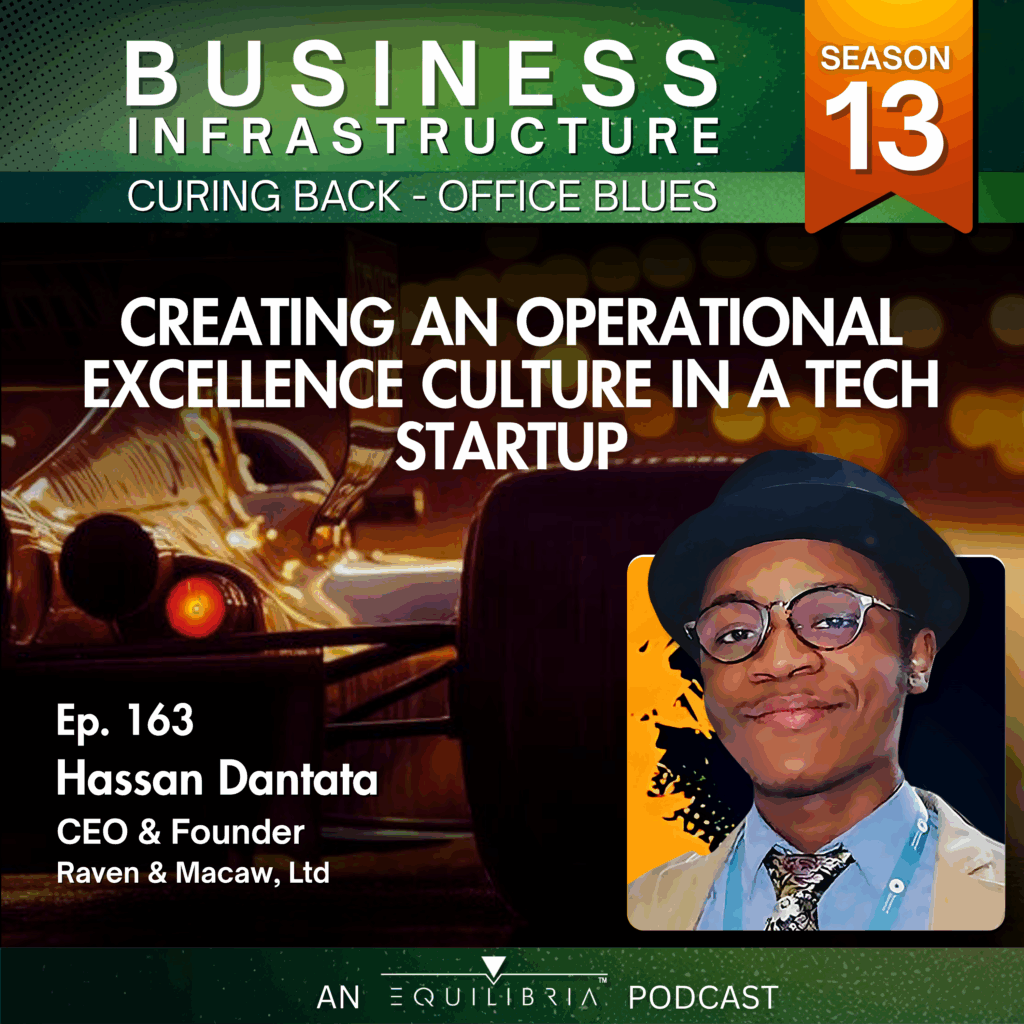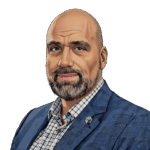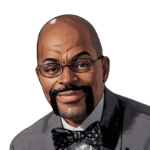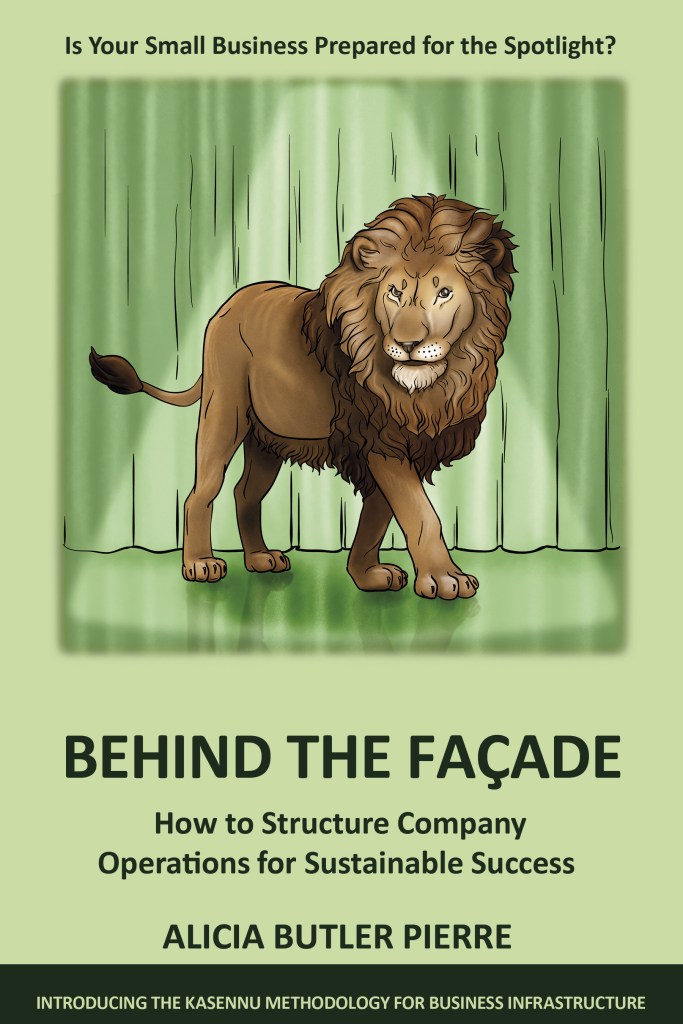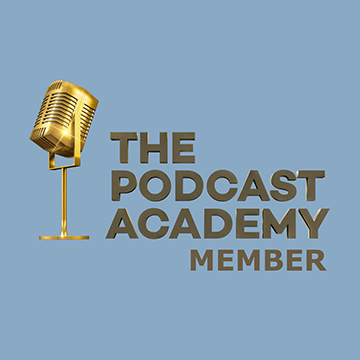Transcript
Have you ever wanted something so bad that you did whatever it took to make it happen? Hi, I’m Alicia Butler Pierre Back in 2001, I remember wanting to go to business school. I had to take the Graduate Management Admission Test, also known as the gmat, to apply. As I began preparing to study for this test, I experienced a setback.
I developed a that required hospitalization for removal. I felt awful, but I never took my eye off the prize. I asked my sister to bring my study materials to the hospital.
I mustered the energy required to continue my studies, and a couple of weeks later I took the test and was eventually accepted into the business school of my choice. None of this would have happened were it not for my sister. Stubborn persistence. But my story pales in comparison to the one you’re about to hear from perhaps the most ambitious and determined young person I’ve ever met.
He gives new meaning to the expression where there’s a will, there’s a way. And you’re about to find out why and how he’s using that mantra to apply operational excellence in his small business, This is season 13 episode 163. Let’s start the show welcome to Business Infrastructure.
The podcast about carrying back office blues of fast growing businesses. If you’re a business owner or operator looking for practical tips and solutions to scaling your business in a sustainable manner, you’re in the right place. Now, here’s your hostess, Alicia Butler Pierre.
Finding your new favorite podcast is hard. Finding one that can help you scale your business is even harder. That’s why they launched the HubSpot podcast network. It includes shows like Martech with Ben Shapiro, a podcast that shares stories of world class marketers who use technology to generate growth, scale their business and achieve career success.
You know the saying, you can’t make all mistakes by yourself. That’s what I love about the Martech podcast. Ben’s guests describe mistakes they’ve made so that you don’t have to Whatever your role or goal, HubSpot Podcast Network has the podcast for you. Listen, learn and [email protected] podcastnetwork having a tough time trying to explain ideas over a video conference?
Try the Think Smart Whiteboard. It’s the fastest whiteboard software in the world and allows you to upload flowcharts and and write on them while your colleagues are watching remotely. Call us today for a free demo. The number is 1-866-584-6804 or visit us online at getmytablet.com now that’s smart. Think smart. It’s season 13. And for the past several episodes we’ve been focusing our conversations on operational excellence, what it is and and how to achieve it. And Hassan Dantata is joining us today in Kano Estate in Northern Nigeria.
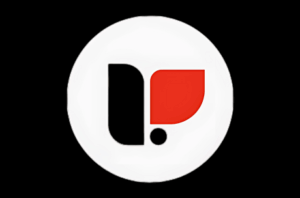
He’s the award winning youth advocate and founder and CEO of Raven and Macaw Ltd. A software as a service company offering fully integrated digital solutions exclusively for the optical industry.
And he’s only 23 years old. We what drives, motivates and inspires a person his age to accomplish so much? Well, you’re about to find out. Hassan, aside from the issues that I had before we started this recording, thank you so much for being here today and for being so patient with me. How are you doing today?
I’m doing great and thank you so much for having me. It’s such a real pleasure and I’m happy to be here. Thank you.
you’re welcome. Now Kano is. Did I correctly say that it’s a state in Nigeria?
Yeah. The states in the northwestern parts of Nigeria.
We were introduced to each other by Amal Hassan and she’s also a very successful entrepreneur who’s built this amazing thriving business also in Nigeria. And when I learned about your background, Hassan, I understood right away why she thought we should meet.
And you know, I always tell people it’s very easy to see people and companies for that matter, where they are now. People that we deem to be very successful. And it’s very easy to see them for who they are and what they represent. Excuse me. As we see them presently, without an appreciation for that behind the scenes journey that it took that person to get there or that behind the scenes journey that it took to get a company to a certain point. Now, your entrepreneurial story, it sounds like starts in 2012 in a hospital room. What happened?
Yes, so I was born with a sickle cell disease, which is you inherited from your parents and is life threatening. And yeah, so I was born with that. And not many people are fortunate because there isn’t the cure in Nigeria. So I was fortunate enough to have a bone marrow transplant in 2012, Manchester. And that’s when everything basically changed. And that was the only cure for the disease.
So you have this bone marrow transplant I know you are. As I’ve read your story, you’re in this hospital room by yourself, and all you have is your mind and your sheer willpower. So sounds like something happened during your recovery period. So. So you have surgery. How old were you at the time?
At the time, I was about 13 years old.
Okay, you were 13. And so you come up with an idea for your first business, right?
Yes.
Okay, and tell us about that.
Actually, I came up with an idea just like, about three years ago while I was still sick. And I, you know, I was still in Nigeria then. It was just a little, you know, selling sweets to my neighbors, and, you know, I wouldn’t even classify as a business. But, you know, that’s when the whole kind of inspiration came from. And I knew from then, you know, I wanted to become an entrepreneur.
And then just later, everything, you know, as business started to pick up, you know, I was making money. Just. It was really growing. And then just, you know, after a couple of months of doing that, I had to close. The business closed and because of my illness, and I was admitted in the hospital with a crisis for about three months. And that basically brought an end to that business that I started.
And then, you know, I just gave up all hope. You know, I said, this is not for me. I can’t do this because of my health. You know, I had so many restrictions, you know, growing up and as a child, many things that, you know, you’d want to do as a child, like playing football, going swimming.
You know, I could just only dream of doing that because of my health. It was really that bad. And, you know, the hospital almost became my second home. I was almost always in the hospital, you know, in crisis, crying, you know, so I didn’t really see a light at the end of the tunnel. But then, you know, later on, when I had the transplant, you know, it was 50, 50, because I was in the beginning.
I even told my doctors that, you know, I didn’t want to go ahead with it because, you know, they said, you know, this might not go very well. You know, it’s a 50, 50 chance because of my complications. But, you know, in the end, my mom convinced me to, you know, is the only way is the only chance.
We’ll pray and everything will be fine. And, you know, thank God, you know, everything turned out to be fine. So from that hospital bed, I started, you know, having hope again. And, you know, I started dreaming again. I started going into, you know, in fact, I couldn’t even wait to get out of the hospital. And that’s when I started my kind of E commerce business from the hospital bed, you know, where I was just selling, you know, phones and used phones.
But that really, you know, taught me a lot, you know, from them, because I was able to do a lot of research. I had a lot of free time. You know, it was just a laptop on the Internet. And, you know, that, I think, is the foundation and the basis to, you know, to me wanting to come into this space, which is e commerce and marketing in general.
How long were you in the hospital? So after you have your surgery, your bone marrow transplant, how long were you in the hospital after that?
Well, in straight isolation without. Because what happens is when you have a transplant, your immune system is very low, so they don’t even let people to come and see. You know, even my mom had to be wearing aprons and washing her hands, you know, just like that. It was the COVID before the COVID.
Oh my gosh.
Exactly, But I was in a straight isolation for about two months, and then after that, I was always in and out of the hospital for about a year till I fully recovered and then I stopped. Well I still haven’t stopped going to the hospital, you know, but obviously the checkups are a lot longer. Maybe two years, you know, three years just to check up and see How it’s going.
Oh my gosh. Okay you’re in complete isolation Hassan and you’re able to have brought a laptop in. So that was okay?
Yes, that’s one of the things the allow, Because as a child, It might get really boring.
Yes
I even got tired of the books and the games that they bring in. It was a PS3 at that time, So they bring in games and a lot of entertainment.
There are specialists which are like trained nurses at the time. So they’re allowed to come in with an apron with their hand washed and everything but for limited amount of time only. Even so It help and I kind of didn’t get bored as I should have been and it was because I had the laptop and all those entertainments.
So you start off at 13 selling sweets to your neighbors. Eventually, you have to forfeit that dream because of your illness. You eventually take that 50/50 chance of having this bone marrow transplant, only to find yourself in isolation for two months. So you’re on your laptop now. And how did you go from selling sweets in person to selling things digitally? How and where did this idea for e-commerce start for you?
I’ve always been a curious person, so I think it started with that. At the time, I didn’t see it as a business I just really wanted a phone.
I looked for good deals on eBay and tried to convince my mom to buy one for me. During that search, I realized regular people were selling things online old phones, random stuff, That gave me the idea.
I could do the same. I had old phones and games I didn’t need anymore, so I thought, why not try it and see what happens? That’s how it all started.
Okay, so did you actually start a standalone e commerce business or did you set yourself up as a vendor on a website like an Ebay?
So it wasn’t exactly, I set myself up as a vendor and then I was. I was selling on that platform.
Okay, and so you did that before you left the hospital?
Yeah, I even got in a bit of trouble with the hospital because I was using their resources to print, and they said, “You can’t do that.”
Yeah when there’s a will, there’s a way.
Exactly
I’m just thinking, When you have to actually ship these products that you were selling, even if it was through ebay, How were you able to do that from a hospital room?
Yeah, I didn’t do that, to be honest. That was when my mom lend me a hand.
Well, if nothing lese you are incredibly resourceful. I must say in America we have an expression here. “Necessity is the mother of invention” So yes you start off with this, becoming a vendor on ebay.
Did you eventually start your own e commerce business, like a standalone entity?
After I got out of the hospital, I met a few of my mom’s friends in Manchester. One of them had a salon business that had closed down. She still had all the equipment and wanted to get rid of it. I told her, “Let me put it on eBay for you just cut me a deal when it sells.”
I ended up clearing almost half her garage full of hairdressing equipment. That gave me the idea: I could do this for other businesses too. A lot of them were still traditional and not online they relied on old-school ways to sell their products.
So I approached a DIY shop, then a bike shop, and started listing their products online. I wasn’t selling my own stuff I was selling theirs. We’d agree that I’d open up a new revenue stream for them online.
Not everyone bought into it. Some didn’t believe it would work. But the few who trusted me with their items and eBay accounts ended up selling a lot.
So after you left the hospital it sounded like you and your mom stayed in Manchester for quite some time. Is that correct?
Yeah, Because I had a few complications after the transplant, even though it wasn’t anything major, So it needed me seeing the doctors almost regularly on 2 monthly basis, and already by then I started school in Manchester, so we kind of just settled in and I was there for about eight years after the transplant.
And so is that Nexford University where you started university?
No actually that was when I came back to Nigeria. Because I did my high school and college, which was A levels and after I finished my A levels that’s when we came back to Nigeria. That’s when I wanted to focus on this business and I took a year gap and I came back here that’s when I started setting up. So I actually took like two or three gap years, and I’m just doing this online. So it’s not really a proper university that you go to in the traditional sense.
So it had mostly online curriculum.
Yeah, It’s 100% an online university.
Okay and I would imagine that worked better for you, considering that the checkups that you still had to go through and the fact that a potential complication could arise. I would imagine having that type of flexibility with you education proved to be very helpful.
Yeah it’s a lot better because I already missed a lot of school when I was ill. Most of the time I didn’t go to school and even after. I was kind of a bit behind within my classmates but then after A levels I just though because the business was growing.
I was still doing it hand in hand, going to college and doing the business. So I just thought I wanted to focus on the business and that’s what I did, Even though I had to fight with my parents to be able to let me do that. Eventually they came around to it, They wanted me to just go to a university.
Yes, of course.
So we had to compromise, which was the online university.
That’s great, So when you get back to Nigeria you continued operating you ebay business. At what point did you actually start your own company? and how did that come about?
Raven and McCall came back immediately after I came back to Nigeria. Because it actually started before. Kind of since I was in the UK, I had the idea because I knew I was going to come back, but I wanted to retain some of my clients that were still there.
And I knew most of the things that don’t have to be there to do them. So it wasn’t just ebay. by the time I finished, I already learned how to do websites and e commerce.
I was doing it for other businesses even though it’s not for me and also graphic design, Social Media. I already started to learn all of that. So I kind of convinced a few people to let me manage their stuff for them remotely so I don’t have to be there and it kind of worked out, it started picking up and once I got back to Nigeria that’s when I really tried to set it up as a business model where it’s like an outsourcing.
We get the job done for you here in Nigeria while most of our clients are base in the UK and that’s the model that we have now till today.

So you formalize it into this new entity Raven and McCaw. But I know you’ve teamed up with an optometrist. is it a business partner?
Exactly. So the optometrist is actually one of the clients that first kind of trusted me with their whole social media and websites.
And then he saw that was working e were making a lot of bookings and making a lot of sales and then I made him a proposal I was like ” Look Invest in this business and we do this together” Then we decided to just focus in the optical industry as well, Because that’s something that before that we were just doing it for everyone, So even real estate companies, schools, and it was just getting too much.
But then we found the niche which was optics and we saw there’s so many opportunities to get from there. And that’s when he came on board as a partner as well.
okay. I was wondering how all of that came together because I was looking at the website, which is gorgeous by the way.
Thank you so much.
very clean website, very easy to navigate and seeing your web design skills, it’s very evident. there’s a very interesting story also behind the name Raven and Macaw. Because I first looked at it and I’ll be very honest with you when I first saw the name of your company without before ever going to the website, I thought it was a law firm. This will be interesting. But then I kept thinking…
And sometimes, you know, people when you see a name like that, they. It’s usually the last names of the founders or the co founders. And so I said, well, that’s not his last name, it’s not Raven or Macaw. Where on earth did his name come from? But there’s such a great story about the origin of the name on the website, but I would love if you could actually share that with our listeners right now.
Yes, actually the most interesting, and the most weird observation of the company that I’ve ever had was that our logo looks like a mustache. So I definitely had to go back to the drawing board. But the name Raven from the olden days. they’re know to be intelligent and very smart and they were used to this kind of messages. In all these mythical stories. And then Macaos are very creative birds. So it’s like a combination of that, you know, intelligent geek and then creativity from the Macaus that makes the whole team Ravens and Macaus.
And even within the team you’re either a Raven or you’re a Macau. So that’s how, like, kind of our team is divided. Some people are hybrid because they’re both Geeks and they have a bit of creativity but those are very rare.
I just think it’s such a great story, such a great name and the fact that there is a story behind the name. It’s very catchy and definitely very easy to remember once you know the meaning behind the name. I’m also curious what made you decide ultimately to specialize in the optical industry?
Because as you mentioned, you were doing some things with real estate companies, hair salons, maybe some barbershops. There were all of these different types of businesses. But what about the optical industry really stood out for you and said, you know what? “This is where we need to place our focus.”
I think of all the clients that I’ve had, I think, you know, the optical practice was. Was by far my best kind of case study, you know, from zero to, like, you know, to a lot of bookings every month. And I enjoyed it so much as well, you know, just seeing that. That transformation. And also because I like glasses, and it’s something that I’m genuinely passionate about all this other industries.
I’m not as enthusiastic as, you know, as I was in this. Ultimately, it just made sense to focus in one niche than to be all over the place. Because, you know, once, for example, you know, we’ve specialized in optics, and then, you know, we go to start doing real estate.
You know, it’s a whole nother, you know, even though the principles, you know, of digital marketing and web design are the same, and everyone that has a skill can do it, but there’s certain key, you know, elements that you’ll be missing or you have to start learning, and it’s a whole new learning experience. And for a startup and, you know, a growing company that’s not the best way to kind of grow very fast.
So by just focusing on this, we have a niche that, you know, we understand, you know, even the keywords that we use to pitch to our clients, you know, they know that we understand, you know, what they want. They don’t have to start explaining to us what a glaucoma is. You know, all this, all these key terms that are industry specific.
And we saw that there weren’t many people focusing on this and it was a opportunity and it sound sounds like thing have taken off ever since.
So you’ve officially had the company now for two years, is it?
Yes.
Okay. And as I understand it, you all are growing very rapidly. Yes. So I’m wondering, Hassan, you know, I’d like to take a break right now so that we can hear a word from our sponsors.
But when we come back, I’d love if you could share with us some of the things that you’re doing to manage that fast growth at Raven and Macaw. And also what does operational excellence look like at Raven and Macaw?
Because I know even though it is still technically in startup mode or startup phase, there are definitely some things that you’re obviously doing, one of them being carving out this niche, as you mentioned, to achieve these economies of scale.
So let’s go ahead and take a quick break and when we come back, I will would love to kind of take a peek behind the curtain and see what you have going on back there that we can leverage and possibly even apply to our respective businesses. So let’s go ahead and take a quick break. In order to build a successful company, you need to create a remarkable customer experience.
And to create remarkable customer experiences, your teams need fast and accurate insights to make decisions. That’s why HubSpot created a CRM platform with powerful and easy to use reporting tools. It helps you empower your go to market teams with the data driven perspective they need to make smart decisions.
Keep your data up to date by syncing all apps and systems in one user friendly package. Enjoy the flexibility HubSpot offers by turning custom property data into reports. And align your team with a single source of truth, giving them access to powerful pre built dashboards that help prove the impact of campaigns.
Provide intuitive sales and coaching insights and highlight clear business performance metrics. Learn [email protected] you know Hassan, it’s so tempting to try to be all things to all people when you start your business because you’re just, you’re just Happy to get the business right. And so I’m so glad that you mentioned this earlier about, you know, you can either dilute your service offering or you can choose to concentrate your service offering.
And so I think it’s brilliant that it didn’t take you a very long time to figure out if we are going to truly be able to scale. We need to have a standardized way of doing things. We need to focus and concentrate our efforts in one particular industry, become really, really good at that industry. And that way we can just keep replicating our successes over and over and over again.
I think it’s brilliant and I’d like to explore a little bit more about what actually led you to that decision and how you’ve been able to build what I call a business infrastructure to support that decision. Now, for those of you who are listening to this show for the first time, business infrastructure is an operations system for linking your people, your processes, and your tools and technologies to ensure that growth happens profitably and sustainably.
So, Hassan, I’m wondering if we can look at each of those components of business infrastructure and if we could just kind of talk about the Raven and McCaw way of doing things. So when it comes to people, I know you have a team currently of 15 employees, and just from some things that I’ve read that you’ve shared with me prior to this interview, sourcing talent, which is an issue for all of us, but you have a very unique perspective on how to source the talent. And it sounds like a lot of it is. A lot of the challenges that you faced are geography based. Is that fair to say? Yeah. Can you tell us a little bit more about that?
Yeah, I think this has been the single most. The biggest challenge that, you know, we’re facing at the moment, even though we’re still experimenting with different things. But because of where we’re based in the northern part of Nigeria, which is, it’s very unusual to see a tech company and, you know, an international tech company for that matter, you know, operating there. It’s a completely different kind of industry. It’s more into like, farming, agriculture, you know, and traditional markets, you know, like textile, you know, and stuff like that.
So as a tech company, a lot of tech companies that start from that region actually go to other, you know, regions like Lagos. It’s a lot. It’s like the Silicon Valley of Nigeria and Abuja as well. So the challenge that we’ve been facing is finding the right talents. There’s a lot of, you know, unemployment in the state.
Yes, but Qualified, you know, skilled people that can do the work up to that international standards that we have is very, very rare. And that’s why most of our staff are actually brought in from a different state, you know, to Kainua. And that’s very costly to do. So we’ve been looking at ways we can, you know, actually train people. There’s two options that we have is either we train people and build their skills, which takes time and resources, or we can move the whole company to a different city, which is like the last resort.
Because I’m really passionate about helping and making an impact in the community. I really want to be the first kind of tech company that did it in the north or in Kano.
yeah. It’s a very impressive goal to have, especially knowing that you will be, if not the first, one of the first tech companies to be able to successfully pull it off. And that’s something, I think, Hassan, again, so many of us struggle with this. Do we seek the people who already have the expertise and the knowledge, or do we look for people who have the passion for learning new things? And as long as we bring them in and they have that passion, you can train people like that really on pretty much just about anything, because they do have that passion. But to your point, there’s pros and cons to both approaches.
There’s, you know, the. The difficult thing or the challenging thing about hiring people who already have the expertise is they’re obviously going to want to be paid more money. And if you don’t have those financial resources at the time, especially when you’re still considered to be in startup phase, that in and of itself can present a challenge. And then on the other side, when you’re looking at the people who have that raw passion for just learning and are like sponges and they can just soak up the knowledge.
You have to spend more time. So you’re either going to be spending more money or more time. That’s usually how it goes. Right. And it’s always a balancing act. And so that’s why I’m so glad you mentioned that. I’m curious, of the 15 employees that you all have right now, do most of them fall under the category of people that had to be trained, or did most of them come in already having certain knowledge and expertise?
You know, I liked your earlier quote where you said “Restraints bring about innovation or something.”
Oh, yeah, necessity. Necessity is the mother of invention. Yes, of invention.

Yeah. So basically, in the very beginning, you know, even if we wanted to hire the talents we couldn’t because the money just wasn’t there. You know, we don’t. We can’t afford that kind of thing. So we had to train people. We had to have that kind of mindset where we try and find the, you know, the people that have the mindset and are willing to learn and soak up and, you know, get up to speed very fast.
And that’s what we did. We still have those people. Is only now that, you know, we’re starting to grow and we don’t have as much time to kind of spend on training. We just need, as soon as we get a client, you know, we need someone that will just, you know, quickly start implementation. And, you know, we don’t have that luxury of time of like three, four, six months, even a year sometimes, you know, to slowly, slowly, slowly catch up, even though it’s something that, you know, we’re doing in the background.
But majority of people are still in that kind of, you know, training phase. And, you know, they. They came very kind of zero or at least very low level of exposure, and now they’re gradually getting it. But other kind of, I mean, the other composition, you know, is like, you know, the real experts and what we’re trying to do is just put for everyone that’s really kind of good and being paid a lot. Part of their responsibility is to teach others and to train. So it’s not just to do their jobs. They have to also teach and train.
And, you know, we have different things like, you know, capacity buildings every, you know, Fridays at the end of the month, you know, we have different courses for different courses for you to do online and to really, you know, level up. Because at the end of the day, what I always tell them is as the company is going very fast, you know, you also have to grow with the company. And if you don’t grow with the company, it’s just someone that’s going to come and take your place or is going to be above you in that sense. So there’s that really competition, if you like, within the team to really kind of grow and be more useful and valuable to the company.
You said something really key. You mentioned mindset. And when we talk about operational excellence, it’s a target, it’s a goal as much as it is a mindset. And so I’m wondering, it sounds to me what you’ve been describing for the past few minutes, Hassan, is what I would refer to as a process.
So as you as a new crop of employees start at Raven and McCaw, they are trained, and then once they are trained, they then have to kind of reach back. It’s almost like being in the Olympics and you are the relay race where you have to pass the baton. Right. So that first person, you might sit down. And in the very beginning, as you started to hire the first few employees, I’m sure it was you. You had to be the person to not only do the work and service the clients and build everything, but you also had to make sure that you were training them.
But then once they got to a certain point, it was then their responsibility to pass that baton, so to speak, and train the people coming in behind them. Do you all document some of those key processes? And if so, how are you doing that? I would imagine because of the nature of the type of business that you’re in, that all of that would be stored digitally.
Yeah, I mean, you know, it’s. We’re still in the very early stages, like you said, you know, that transformation between, you know, from being a freelancer to someone that, you know, delegates stuff has been extremely difficult, you know, because I’m usually the creative.
I’m usually the person that sits down and build the websites and do the social media marketing. So, you know, and then it comes to the issue of micromanaging as well, you know. But I think we’ve all passed that stage now. And I think at the moment it’s just trying to have that kind of a structure where you, you know, you just know where everything and everyone should be. And I think, you know, we haven’t perfected it, but it’s still, you know, it’s still there.
We’re not at the stage where we’re documenting it. If it’s just. It’s happening because we haven’t perfected that process.
If I may, I’m putting on my consulting hat right now, but so I would. I would just encourage you, you know, especially as you start to. I’m sure there’s something documented somewhere, but start. Yes. Start to bring this.
What do you mean by documented?
in other words, this is how to do certain things in the company, for example.
Oh, yeah, of course.
Okay. So that’s what I’m talking about. That’s what I was thinking of. I would imagine that at some point something has been documented, but to your point, even though it’s only been two years, just getting something documented and with the understanding that you can always continuously improve that documentation and add to it, of course, things are always going to be constantly Changing. So, but the idea is to have things documented, so that way there’s a standard way of doing certain things within the company.
Yeah.
Okay. And how do you all store that information? Is it kept in the cloud somewhere.
Yeah, it’s kept in the cloud. We kind of have this project management software that kind of has. Includes a lot of things, you know, including even wages and, you know, even, you know, what everyone is up to, what everyone is working on. And then in terms of the processes, the time that you come in, the hours you’re supposed to be there, and then in terms of the hiring policies, the contracts, it’s all there on the system.
What’s the name of that system? If you could share that with us?
It’s worksuite. So it’s actually when we started, it was very difficult for us to afford all these softwares that are pay monthly. Yeah, we, we found one which is like, I don’t know. Have you heard of worksuits before?
I haven’t, no.
Yeah, so it’s, it’s very like. I had to do a lot of research to kind of find it, but it’s like a one off payment and you integrate it with your website and then. Yeah, once you do that, you have the raw code. And so we kept on changing it as time goes. We kept on changing it to suit our own peculiar business. So it’s not like generic or something we can’t change. So we keep changing the whole software as it is because we have the raw code.
Is that what they mean when they say an API? I’m speaking from a total perspective of ignorance when it comes to software development, but is that kind of what you’re talking about? That worksuite has this API that you can. That allows you to integrate with your website.
It’s not quite an API download, it’s a web application that you can basically edit and make it your own and customize it.
Okay, yeah, but it allows you to. That it has that project management feature that you’re talking about.
It has all the project management features and the modules. I think I’ll send you a link to it once.
Yes, absolutely. Thank you. And that way we can make sure we share it with the listeners in the. In this episode Show Notes. You know, I’m realizing we’ve talked about, you know, the web design services that Raven and McCaw offers, but we didn’t talk about the software in and of itself. Now, did you develop the software yourself? And if so, what exactly does this software do?
Yeah, so this software is a project management system software for just opticians. And yeah, we designed it in Raven and Macau, but I didn’t personally, you know, we have a fantastic team of software developers which, you know, they’ve been working on it over the past years and we’ve only just, you know, launched it a few months ago. And it’s basically an A to Z kind of, you know, optician would need to manage their practice from analytics to managing their patients, to email notifications and SMS to dispensing. And the TIL system accounting is from A to Z opticians would need.
And we did that based on the experience we have in the optical industry and what the pain points were that we were seeing from a lot of the practices and our clients is essentially we’re targeting the same people with the same software that we’re doing digital marketing for. It’s just an additional tool for them to help manage their whole business practice.
So it’s literally handling all of the back office operations. Yes, for the business. Okay, that is wonderful. So that’s clearly a resource. And you mentioned work suit. You also referenced online courses. Are, are there certain websites that you can recommend that our listeners might, might visit where they can also look into maybe purchasing some of these online courses for their team members as well?
Yeah, we use them, Coursera and Udemy as our main kind of learning platforms and they’re really good.
And are there any other resources, Hassan, that you would recommend that, that you found to be very helpful for you as you’ve been building your practice, building your company and you know, it’s a software as a service company now officially, but have there been any other resources that you found very helpful? In particular, I know you are a member of the World Economic Forum’s Global Shapers community, so I definitely want you to tell us a little bit more about that as well.
Yeah, in terms of more resources, I think my biggest resource to date and from when I started from the hospital bed has always been Google. Google has always been the biggest, you know, whatever I wanted to learn. You know, it’s not like I went to school to learn these particular skills. You know, I learned them all online and you know, from just doing a lot of, you know, research on Google, I was able to find a lot of, you know, good kind of ways to do things and ways to think about things and good tools that, you know, help manage. We also use Slack. Slack is a very good resource we use to kind of chat and communicate.
Slack is phenomenal. Yeah, it is such a great tool.
It really is.
yeah, this has been fantastic. But what is the World Economic Forum’s Global Shapers Community?
Yes. So it’s a community of young people all around the world. I think it has over 300 to 400 hubs around the world in different cities, and it’s basically young people coming together and trying to make change within their communities and the world at large. And so a lot of these trainings that we do, we know we’re doing it in partnership. You know, we have kind of a foundation, Raven and Macau foundation, where we have just launched it a few months ago.
We’re trying to train and get people skilled up so that at the end of the day, you know, we can hire from that pool. But then also, you know, we’re making an impact within the community and training people. Even if someone doesn’t end up working with us, you know, the skills that they would have, you know, they can, you know, start their businesses, you know, and it would help them in whatever profession, you know, that they go on to do. But, yeah, I’m a member of that Global Shapers Community in Keno, which is an initiative of the World Economic Forum.
I also noticed on your website, or maybe I saw this on your LinkedIn profile, that you’ve also been seen or featured in British Vogue as well as GQ magazine.
Yes.
Tell us a little bit more about that, Hassan.
So when I was in Manchester, as I was doing the business, I was doing a lot of things, you know, I just. Every opportunity I really got, you know, I got. I said yes, you know, no matter what it was. So I kind of got interested in youth politics at that time. And we were doing so many projects. I was elected the member of UK Deputy member of UK Youth Parliament, Greater Manchester Youth Combined Authority, Manchester Youth Council. And, you know, with that, I was representing over 45,000 young people in Manchester, you know, and that lasted for about two years. And what we basically had to do was represent young people in different platforms and get the voices heard and, you know, try and come up with campaigns that affect young people.
So we worked a lot with. With different institutions, different universities, politicians. And, you know, through that, we worked on this project which was called Portrait Youth, in partnership with Manchester University. And then it was kind of a surprise. We didn’t know that we were going to meet David Beckham and the magazine. Yeah, it was all through that that we kind of, you know, after we finished the project, it was launched nationally and it was a huge success. And then, you know, they visited Manchester, and then that’s how we got to meet, you know, David Beckham and all the CEOs of the Vogue, British GQ. And then, yeah, from there, you know, we were featured on their Instagram pages. And, you know, it was. It was a really exciting time.
Yeah, that’s quite an honor. And, yeah, I love how humble you are about all of it, but, I mean, you have. What you have accomplished in just 23 years is nothing short of amazing. And I am a fan now, officially, and I definitely want to make sure that I stay in touch with you and keep up with all of the additional amazing things that I know are sure to come from you, as well as Raven and Macaw and some of the other things that you are doing in terms of youth advocacy. What’s the best way for people to connect with you? Hassan?
Mostly on Instagram. Hassan underscore Dentata. And then I’m also on Twitter with the same handle, Hassan Dentata. And then my email is H. Dentatavenamacow.com you can reach me. Yeah, through those mediums.
Yeah, I know. You’re also on Clubhouse as well.
Yes, I keep forgetting.
I only know that because I saw that from the initial form that we asked you to fill out, there was.
A time I was getting too distracted. I opened the account, and then I just found myself getting bombarded with notifications and getting into it, so I just decided to mute the whole application.
Yes.
I don’t get notifications from it, so I rarely go on it now, and I’ve kind of recovered from my addiction.
Yeah, I found myself. I just got sucked in, and it’s. It’s. It is like going down a rabbit hole. And. And your point? You. You start getting the notifications on your phone, and it’s like, oh, my goodness, do these people ever sleep?
Yeah.
So, like you, I had to completely disable it, but this has been phenomenal. Hassan, I can’t thank you enough. And what I’d like to do right now is just kind of recap some of the things that you share with us. First, what a story. Starting off with telling us. And thank you for sharing such a personal aspect of your life with us.
I wanted to make sure I thanked you for that in particular, but just sharing that entrepreneurial journey with us and how it started at age 13 with selling sweets to your neighbors and friends and family, and eventually finding yourself in a hospital after a bone marrow transplant. Thankfully, it was ultimately successful, but during that Time, you know, of being in isolation, hey, you had your mind, willpower, and a laptop, and that’s how you got on ebay, set yourself up as a vendor, and started to gain some success while getting in trouble also at the hospital.
But then eventually, once you were able to, you know, you and your mom, you started working with different people that you all knew throughout Manchester and starting to sell their goods on ebay as well. And sharing with us that by the time you made it back to Nigeria, you were enrolled in an online university and you started Raven and Macaw and you started working with all different types of companies.
But it was one industry in particular that really stood out because as you said, it served as your best case study. And so you just decided to have your niche there in the optical industry. And what I love about the fact that you talked about what you’ve been able to accomplish by having this niche, by having this focus and this concentration, is the fact that it does enable you to better standardize the work.
You don’t have to have that learning curve with every single client or every single project. You already know what to expect. It also helps you create economies of scale. So with the fast growth that you all are having, the only way that that can be sustainable, as I see it, is to have that niche and developing all of your talent around that niche. I also appreciated the fact that we had this conversation about time versus money.
You know, do you have. Sometimes we find that we have more time than we do money. And in other instances you’re going to reach a point, Hassan, where you’re going to have more money than you do time. So it’s always a constant balancing act. And so for those of you who are listening, just know that you’re not alone in that struggle. Even companies that are very sophisticated and have been around for many, many, many years, we all still have that day to day struggle of do I spend the time or do I spend the money?
I love the fact that you distinguish your employees as Ravens versus Macaws and how it was your Ravens who actually helped develop the software solution that you have specific for the optical industry. And again, thank you for being candid and sharing with us very matter of factly that the transition from being a freelancer to a delegator has been a tough one. But I know you’re up for the challenge, look at everything you’ve done so far.
So I have no doubts that you will reign victorious in that endeavor. So if you are like me and you are inspired by Hassan, you want to Learn more about him, and you can possibly even benefit from the services of Raven and Makah. Make sure you connect with him again. He’s on Instagram and Twitter. His name is Hassan. That’s spelled H A S S A N Danta. That’s D A N T A T A.
We won’t mention Clubhouse. We won’t bug you with Clubhouse. And you were also kind enough to share your email address with us. Hassan, thank you so much. This has been a real treat and I’m very grateful and so glad that Amal introduced us to each other.
Thank you so much, Alicia. I really appreciate and I enjoyed this conversation. Amal is actually a great mentor of mine, and, you know, she has kind of really played a major, you know, role in helping me grow. Grow this. And every time I have, like, a major panic attack, she’s always the person I run to help.
Well, She’s an excellent mentor to have and you’re very, very, very fortunate. So. So, yes, that’s. That’s good to see. Hear that you all have that kind of relationship. Now, for those who are listening, don’t forget to check out BusinessInfrastructure TV, because that’s where you’ll be able to link up to all of these resources that Hassan has shared with us throughout the course of this interview. There’s no need to type anything out.
ust click the link that’s available in this episode’s description wherever you’re listening to the show, and it’ll take you directly, directly to that list of resources. And once you’re directed there, you’ll also see more information about the HubSpot Podcast network as well as our sponsors. Make sure you support them, please, because when you do, it helps us keep this show free for you.
Again, just click that link that’s available in this episode’s description. Thank you so much for tuning in and for being a loyal subscriber. Remember, stay focused, be encouraged, and keep operating as good on the inside as you look on the outside, because this entrepreneurial journey is a marathon and not a sprint. Until the next time, thank you for Listening to Business Infrastructure.
The podcast about curing back Office blues with Alicia Butler Pierre. If you like what you’ve heard, do us a favor and subscribe. Leave a rating and review, and more importantly, share with your colleagues and team members. So congratulations. Benefit from the information. Join us next week for another episode of Business Infrastructure with Alicia Butler Pierre.
![]()
![]()


